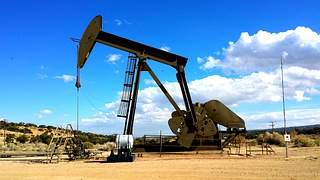
The Saudi Arabian oilfields Abqaiq and Kurais came under a large-scale attack involving 10 drones over the weekend, stopping the production of 5.7 million barrels per day and sending Brent crude prices higher by 20 percent, its biggest spike in 28 years. The Abqaiq oilfield has the ability to process 7 percent of the global supply, while the Kurais field produces about 1 percent of the world’s oil. Together, these fields account for more than 50 percent of Saudi Arabia’s total output.
Brent crude prices were up to $71.95 per barrel on Monday, while U.S. WTI prices hit a high of $63.34 per barrel before paring gains.
According to Bloomberg, the attack prompted the worst disruption in the oil markets in history. The plants, run by Saudi Aramco, could be out of commission for months, and analysts are already predicting that the recent price jumps could just be the beginning of major price movements if the plant outage lasts for an extended period of time as global supply will be significantly limited. Analysts are currently waiting for Saudi Aramco to announce their determination as to when the plant will get back to its regular production levels and are drafting scenarios for how the markets will move if the outage lasts for both weeks and months.
For the moment, the Paris-based International Energy Agency (IEA) has noted that the plants account for only 5 percent of the global oil supply and that there are sufficient global stockpiles to buoy the markets for some time. Still, some analysts predict a rise in Brent prices to over $100 per barrel.
What Comes Next?
U.S. President Donald Trump was quick to authorize the use of the U.S. emergency oil stockpile to keep prices stable and to threaten a potential response for the attack when warranted. The Yemeni Houthi group has claimed responsibility for the attack, and has threatened the possibility of further attacks in the future. Nevertheless, U.S. officials, including Secretary of State Mike Pompeo, have placed the responsibility on Iran. On Saturday night, Pompeo tweeted that “Tehran is behind nearly 100 attacks on Saudi Arabia while Rouhani and Zarif pretend to engage in diplomacy…Iran has now launched an unprecedented attack on the world’s energy supply. There is no evidence the attacks came from Yemen.”
As of 2:14 p.m. HK/SIN, Brent crude futures were up 10.54 percent to $66.57 per barrel and U.S. WTI futures were up 9.39 percent to $60 per barrel.
